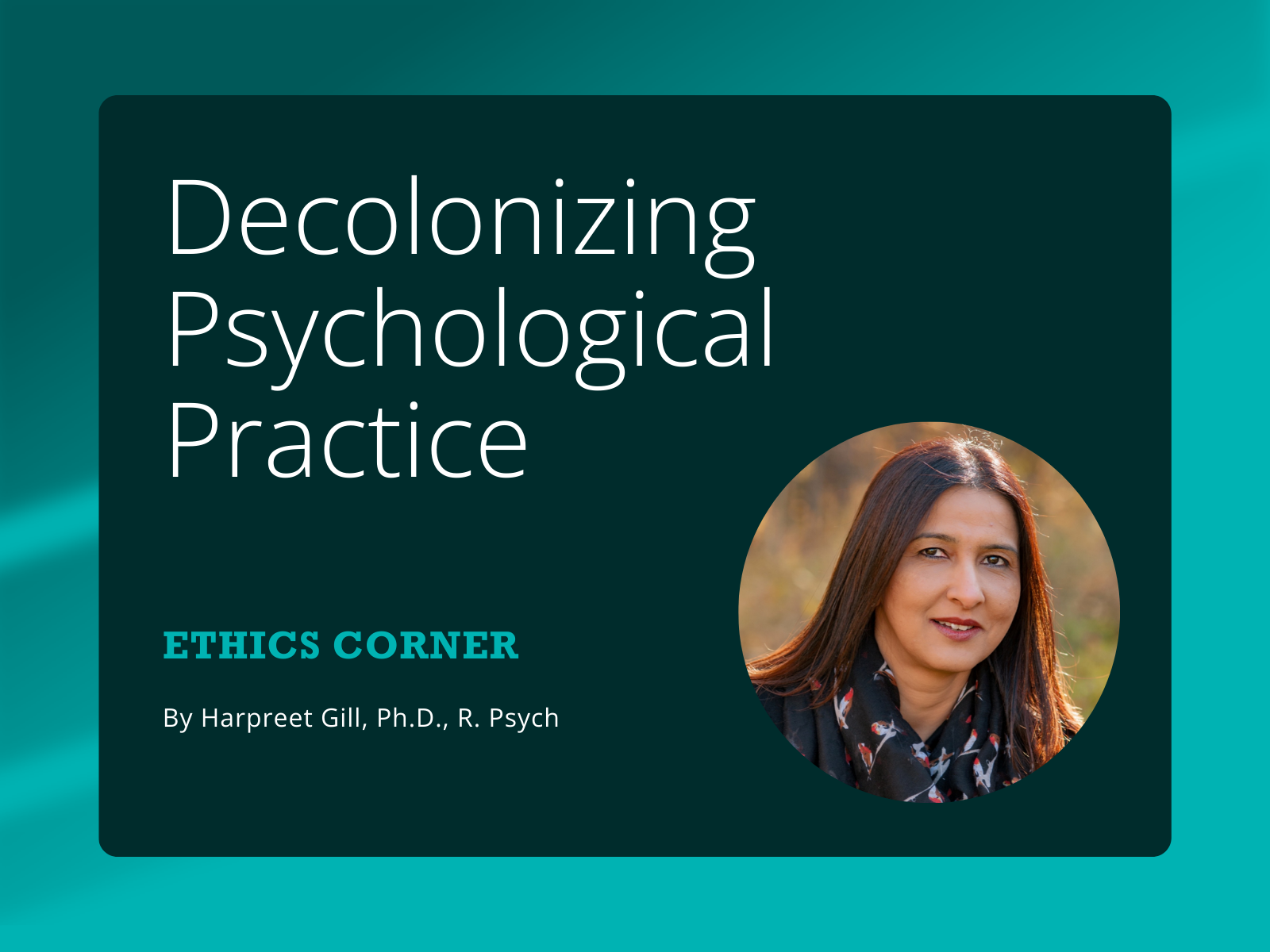
3 minute read
Ethics Corner
Decolonizing Psychological Practice
By Harpreet Gill, Ph.D., R. Psych
Dr. Harpreet Gill is PAA’s Director of Professional Affairs, a program that assists members in learning about ethics and thinking through ethical dilemmas in their work as psychologists.
The concept of context is critically important in understanding mental health as it can be a complex and nuanced area of care. Context affects one’s thoughts, emotions and behaviour. Mental health practitioners need to consider their patient’s context and culture when assessing and treating them. Decolonizing psychology helps expand one’s horizons and positively impact the fields of practice, research, teaching, etc.
Decolonizing one’s psychology practice means providing services within a sociocultural context. The ADDRESSING model (Hays, 1996) considers Age, Developmental disability, Acquired disability, Religion, Ethnicity, Sexual orientation, Socioeconomic status, Indigenous group membership, Nationality and Gender for a complete understanding of cultural identity, under-represented groups and oppressive forces. Other aspects of diversity can also be considered, like the language spoken and place of residence, e.g. rural residence and their intersectionality.
To provide competent care, psychologists need to have a basic knowledge of diverse contexts and how they are interwoven into adaptive and maladaptive human behaviour. Practitioners must also be aware of their own orientation and how they might affect their patients. To ensure ethical practice, psychologists need to have open discussions with their patients about the values that underlie treatment. Another important way to enhance learning is for clinicians to consult with experts who represent different cultural, religious, spiritual traditions and groups.
The traditional field of psychology is not the only source of knowledge and healing. Psychology as we know it today developed within the academic institutions of Europe and North America and rose to fame largely in the first half of the 20th century. Indigenous psychologies emphasize the unique worldviews, practices, and traditions of various cultural groups around the globe (Ciofalo et al., 2022). Reflecting on Guru Granth Sahib, the holy book of the Sikhs which has the teachings of different Gurus from the late 14th century onwards, offers timeless wisdom, providing practical guidance for understanding and harnessing the power of the mind. It includes concepts of consciousness, perception, thoughts, emotions, actions and path of self-realization.
We need to appreciate Indigenous science and learn to apply and respect the wisdom and practices of Indigenous cultures. There was failure to incorporate Indigenous culture and knowledge into the discipline of psychology. It is necessary to expand the psychological practice to incorporate Indigenous ways of knowing, being, and doing into psychology. This can be achieved by acknowledging the extreme harm done to Indigenous people through colonization and incorporating the Indigenous ways of practice into the ethos of psychology.
It is time that we embrace a decolonialized approach by implementing Indigenous knowledge systems, providing culturally sensitive care, thus enhancing the well-being of our patients and ourselves.





